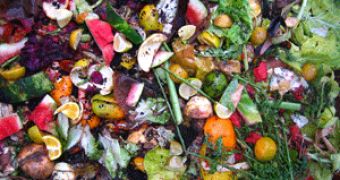At the moment, restaurants and other such businesses in Massachusetts dispose of whatever leftovers they may have by simply throwing them out with the rest of the trash.
What makes this situation an unacceptable one – from an environmental point of view, at least – is the fact that, when they begin to decompose, organic elements such as food release a greenhouse gas known as methane into the atmosphere.
Although carbon dioxide is largely known as one of the leading causes of the planet's climate change, it seems that methane's negative effects on the environment are 23 times more powerful than those of carbon dioxide.
In the natural world, methane is easily controlled by the very mechanisms by which all ecosystems function: waste is rapidly converted into energy, heat and fertilizer, and thus the quality of the air remains unharmed.
However, in Massachusetts, where a total of 1.5 million tons of organic waste is improperly disposed of each year, things are not looking good.
As GreenLodging reports, these are the reasons behind the state's DEP (Department of Environmental Protection) decision to ban all businesses having to do with the food industry from simply sending their leftovers down the garbage chute.
Greg Cooper, the director of consumer programs for the DEP, claims that, the way he sees it, monthly discussions on this topic will lead to coming up with some viable solutions to the problem by the beginning of 2013.
As well as this, Greg Cooper believes that no later than 2014 officials will be able to proceed to implementing the new rules and regulations.
Besides wanting to abolish the negative effects that current waste disposal practices have on the environment, Massachusetts' Department of Environmental Protection aims at using all of this organic “trash” to make compost, which is basically organic matter decomposed and recycled with the purpose of being used as fertilizer.
For the time being, we can only hope that things will go as planned and that by 2014 Massachusetts will appear to the rest of the world as a clean and environmentally friendly city.

 14 DAY TRIAL //
14 DAY TRIAL //